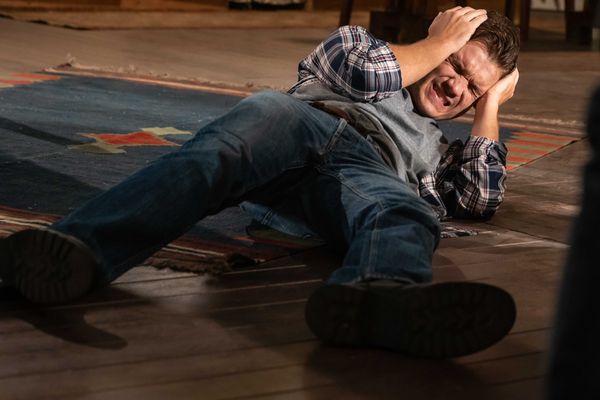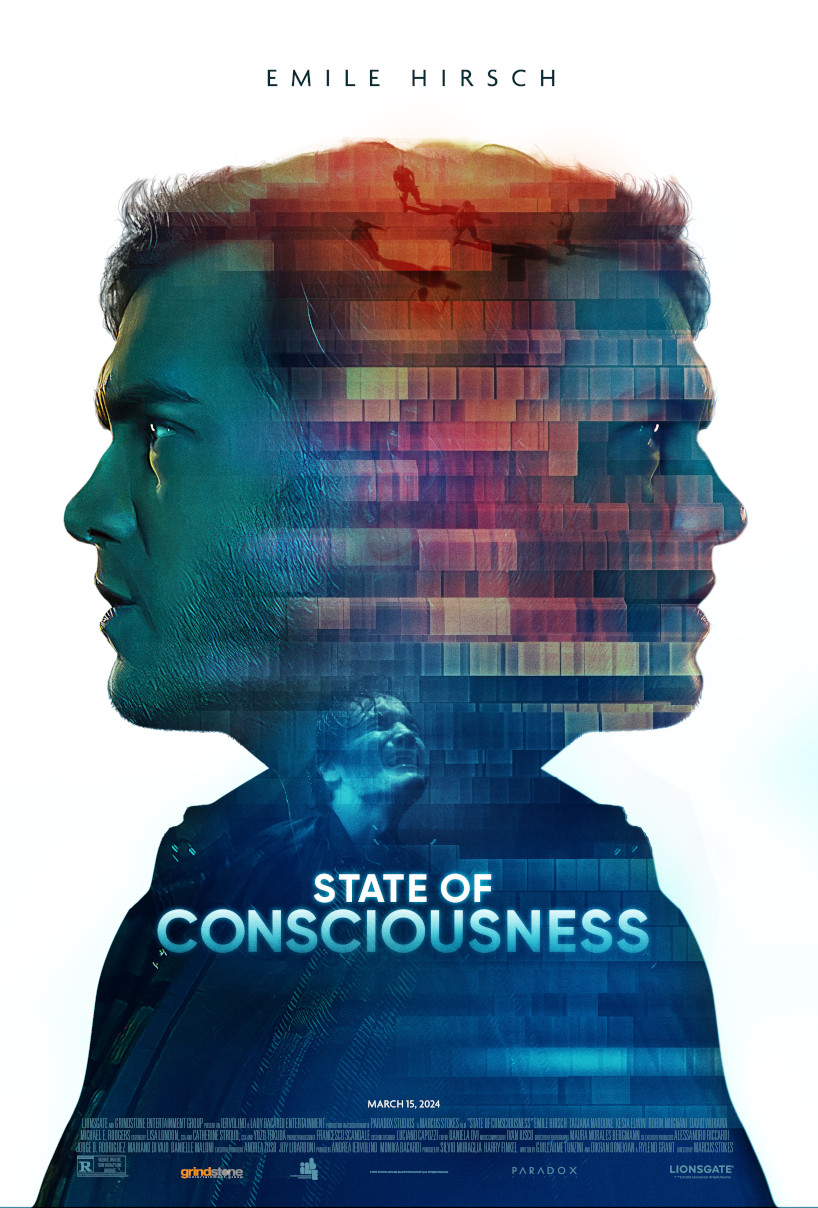Eye For Film >> Movies >> State Of Consciousness (2022) Film Review
State Of Consciousness
Reviewed by: Jennie Kermode

Emile Hirsch is a very capable actor. He’s done amazing work in films like Freaks and Killer Joe, so he is, let’s say, the kind of person a beleaguered film critic might take a chance on even when he’s appearing in the kind of film they’d normally avoid. This particular critic reminded this critic of why that rule was in place, but also of how the best actors are capable of salvaging something even in the worst situations.
There have been good films about mentally ill people confronted with a series of possibly hallucinatory, possibly real scenarios which they are determined to escape – [film]Shutter Island/film] springs to mind – but they are few and far between. It takes a sharp script and a talented director to make them work. In this case, the script appears to have been assembled by committee. The idea behind these things, so I’m told, is to invoke that special kind of fear that comes from ‘waking up’ out of a nightmare only to find oneself in another one. In reality, though, such experiences are more often irritating than terrifying, and when they play out in cinema, they have another problem: they make it difficult to invest emotionally, because it’s difficult to believe that anything the main character is facing should be taken seriously.

State Of Consciousness gives us a little something to hold onto at the start, with a passionate scene between Stephen (Hirsch) and his girlfriend Alicia (Tatjana Nardone). The chemistry between them is great and it leaves one with the feeling that they ought to be together, though they are soon separated when Stephen is arrested for a crime he desperately denies. Placed in a psychiatric institution as an alternative to prison, he thinks he’s got through things relatively easily, only to find himself struggling from one uncertain state to another and, in between, getting glimpses of surgeons inserting a cable into his brain.
The films is – sort of – going somewhere with all this, but it takes far too long to do it, and runs through each scenario in far too obvious a way. The overblown soundtrack doesn’t help, giving some scenes which ought to be meaningful more of the quality of a soap opera. In addition to this, everyone watching will know where the story is going, because the alternatives would be even weaker. When it comes, however, the final act is unexpectedly gripping. It may be predictable and saddled with clunky dialogue, but it brings back Nardone and gives her room to show what she can do as an actor, and between them she and Hirsch just about make it work. It helps that we also get away from the flat lighting and visual poverty of earlier scenes. Director Marcus Stokes knows how to shoot noir.
There’s a strong ten minute short here. It’s just a shame about the other hour and a half.
Reviewed on: 14 Mar 2024















